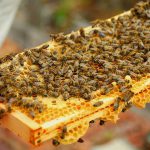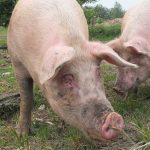
Addressing the Portfolio Committee on Agriculture, Forestry and Fisheries, Mr Tim Odendaal, Soygro Director, said Soygro produces biological products for agricultural purposes, not chemicals.
Soygro produces fresh inoculants. Imported inoculants are old and carry poor performance. Imported soybean Rhizobium strains contaminate South African soils with inferior inoculants races and reduce yield.
Act 36 of 1947 limits new biological developments and limits the growth of local biological businesses as well as job creation. The proposed requirements of Act 36 of 1947 such as reputable laboratories, toxicological data, efficacy trials, residue analysis, blends, etc would stop business as usual for a company such as Soygro in its tracks in terms of cost and time.
Soygro argued that total compliance with all categories would be a financial disaster. Soygro takes at least 5 years to develop and test a new product. Local research and institutions are focused on chemicals, not microbiologicals. Knowledge and experience on the broad field of micro biological inoculants in South Africa is very limited and mostly unavailable. But Soygro has the expertise and has been involved since 1988. Microbiological inoculants for minor crops such as clover, chickpea, and Sainfoin would not be served as registrations cannot be done at all.
Private consultants for DALRRD do not have the necessary expertise in the development and application of microbiological inoculants. Soygro needs a positive attitude towards microbiological inoculants from the agricultural community and authorities. A fresh look at new possibilities on research is needed, and not only at agrochemicals. The following organisations need to be positively educated towards microbiologicals:
- DALRRD and ARC
- Grain SA and Maize Trust Protein
- Research Foundation
- Drybean Producers Organisation
- Potatoes SA and
- Agrochemical Representatives
Source: https://pmg.org.za/committee-meeting/25941/
Related chapters in the Agri Handbook include “Speciality fertilisers“, “Fertilisers“, “Compost and organic fertiliser” and “Earthworms and vermicompost“.



Share this article







